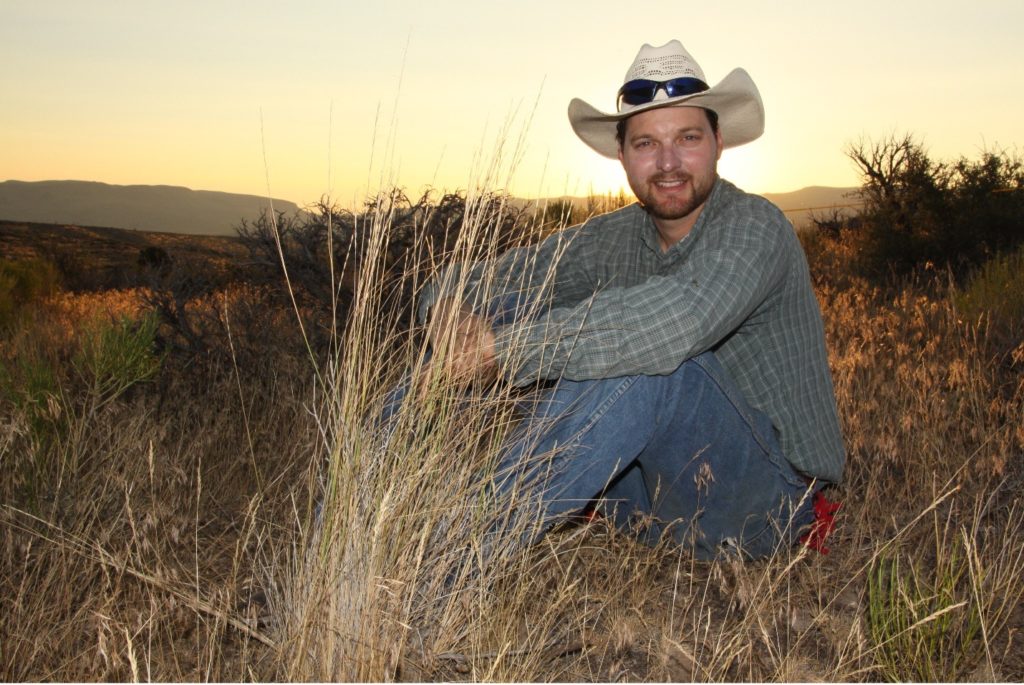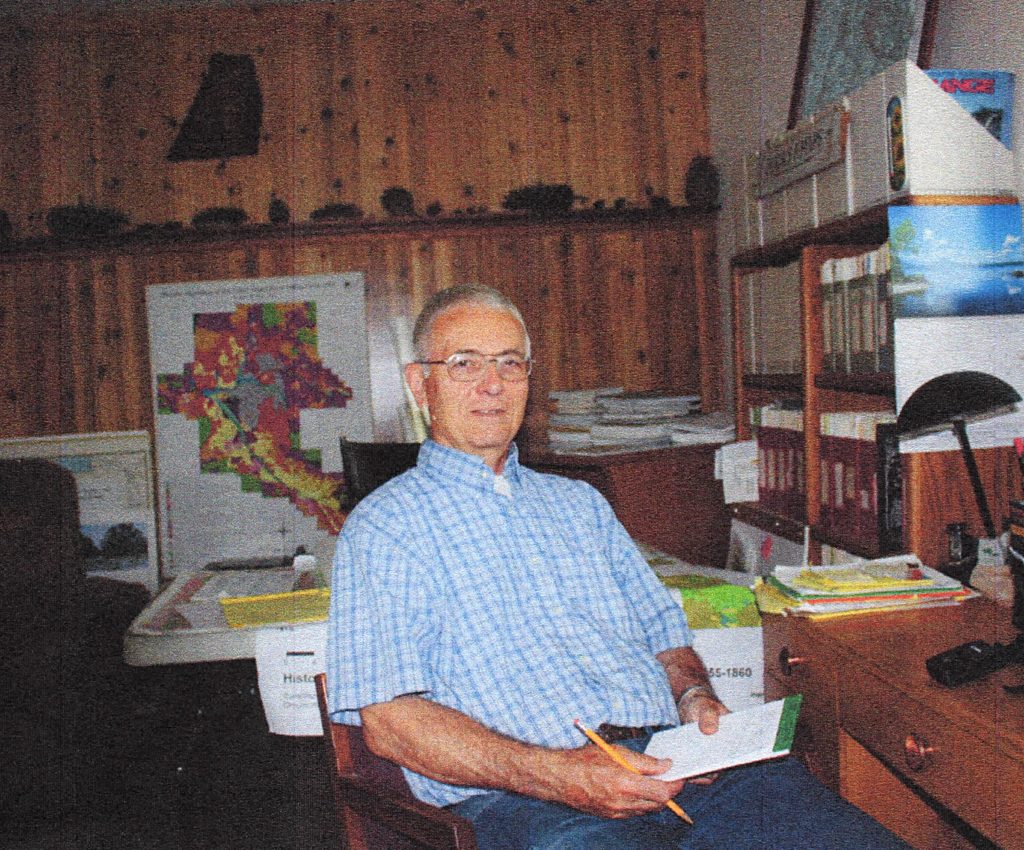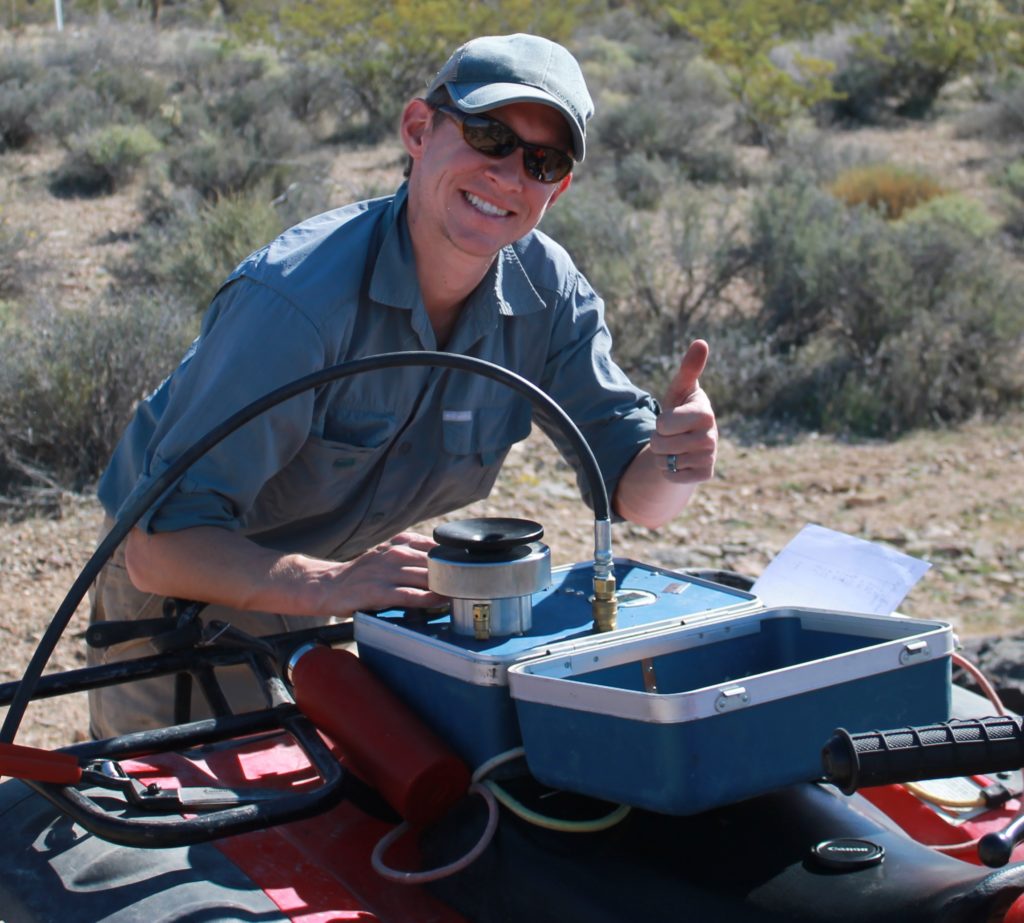
As the 2nd vice-president, I would continue to advocate for rangelands and SRM as a whole. In my professional work I strive to find ways to educate others on the benefits of rangelands as well as ways to continue to improve our landscapes. I’ve worked with various groups, some conflicting, to identify win/win opportunities that can benefit everyone involved, especially landscapes. I am dedicated to rangelands and the people who enjoy and manage. I will do what I can to help everyone find more enjoyment with rangelands while continuing to improve the greatest lands out there.

My first experience with the Society for Range Management was in 2016 when I was invited to attend the annual meeting as a student in Corpus Christi, but unfortunately chose not to go. After hearing about the experience of other students I was poised to go the next year. I participated at St. George as a student the next year and have not looked back since. During school at Oregon State University for a B.S. in Rangeland Sciences and Montana State University for a M.S. in Animal and Rangeland Sciences, I have thoroughly enjoyed attending the annual parent society meetings. The connections I have made through attending those meetings and serving on the advisory council for the Young Professionals Conclave have given me friends and colleagues throughout the west. My excitement from the knowledge I gained from the annual meetings is something I would hope to replicate for all PNW participants.
Throughout college and shortly after, I have grown professionally through seeing multiple ecosystems in roles from consulting internships to cowboying. I am thankful for the opportunity to run for a director position in the PNW section. If elected, I would like to focus on high school, college, and young professionals striving to provide them education about future careers, networking for college and/or careers, and training opportunities. In my current role as an ecological coordinator at High Desert Partnership in Burns, Oregon I get the opportunity to collaborate with federal, state, county, private, and NGO partners in Harney County working towards common ground on land management. This job is helping me develop my skills managing projects, effective communication, and finding middle ground between partners who don’t always see eye to eye. Between my past experiences and my career right now I feel I have the skills to continue the progress in the PNW section and continue growth for our next generation of range managers. I appreciate your consideration to serve as a director for this section.

I have been working as a Range Management/Ecology Consultant in Oregon for the past 22 years. This follows my 35 year career with the NRCS (Oregon) as a Range Management Specialist. The work load involved Plant Materials testing, ranch grazing land inventory with management planning, watershed assessment team, and Coordinated Resource Management Planning leader/trainer. Also, Soil Survey ecological data collection and Ecological Site Description preparation for range and woodlands: SW Oregon, central and SE Oregon.
Work as a private Contractor included range inventories of State Lands in SE Oregon, and collecting ecological data for BLM at C-S National Monument east of Ashland. A study to map landscape vegetation prior to hydraulic and placer mining (late 1800s), and to interpret changes since mining ceased, was conducted near Jacksonville, Oregon. Also, vegetation research based on General Land Office (GLO) surveys (mid 1800s) was conducted to transcribe, interpret and map historical vegetation on over a million acres in SW Oregon. I have done many rangeland-agricultural assessments for rural property owners to meet County Planning Department requirements for partitioning/development. Rangeland and grazing system planning has been provided to ranchers, especially when needing this for project funding. And, I have an on-going agreement with a large commercial Tree Farm near Klamath Falls, Oregon, to do assessments of their forested grazing Allotments.
My introduction to SRM was as a student at OSU as an Undergraduate, and then as a Graduate student in the School of Agriculture. My Masters research study (1966) was titled: Seasonal trends in the Nutritive Content of Important Range Forage Species near Silver Lake, Oregon, and was published later as a USFS Research Paper (PNW-1987) in 1975. I have been an SRM member most of my professional career and give oral papers occasionally at national meetings. I value technical information provided through SRM meetings, and all the professional connections with colleagues at in-person meetings. Joining the team again as a Director would be rewarding and a way to help with the planning and production of future SRM events.

I am drawn to the profession of rangeland management because I think it presents a unique host of ecological, economic and social challenges. Throughout my career working in the nonprofit, private and government sectors, I have taken on these challenges from a number of directions including leading disadvantaged young adults in restoration and range improvement projects; inventorying and monitoring plant communities in Washington, California and across Oregon; teaching introductory rangeland ecology courses; coordinating a watershed council; planning and implementing riparian restoration projects and developing ecological site descriptions. A common thread through this journey has been a focus on improving the health of our land while connecting people with the ecological knowledge and tools to sustain this health holistically. I currently work with the NRCS Soil Survey in Redmond, Oregon as an Ecological Site Specialist, where I have had the opportunity to further advance these pursuits. In this position I work with folks throughout the region to better understand rangeland ecological and management dynamics, develop technical tools and update ecological site information and soil mapping. Recently, I attained my CPRM as a means to strengthen my technical knowledge through the support of SRM’s professional program.
I became involved with SRM while pursuing a M.S. in Rangeland Ecology and Management at Oregon State. Upon attending my first conference where I had the opportunity to present my research, I found that the organization served a key function by creating a forum for the union of technical science and practical management in rangeland systems. By bringing diverse interests from scientists, students, educators, land managers and agricultural producers together, I believe SRM provides a unique platform for the fostering of rangeland literacy. I hope to be further involved with these functions as a director with the PNW section. If elected, I intend to work towards recruitment and retention, to ensure that our organization and section continues to have a strong presence. I am also excited about the prospects of working toward further chapter involvement and helping to provide opportunities for education and professional development. I believe I would serve the section well with a diverse background and a voice of scientific integrity.

I have been an active member of SRM since 2009 when I started the Brigham Young University-Idaho rangeland club so that I could attend the Idaho fall section meeting. From 2010 to present I have volunteered or held positions in the parent society of SRM but never at the section level because I have always been moving due to being a graduate student or early career professional. But, in 2011 I did help organize the High School Range Camp in Oregon at the Northern Great Basin Experimental Range. Within the parent society I have been heavily involved with the Student Activities Committee serving as Sub-committee chair of the Display Contest now the Website Contest for 10 years, I also was the Student Activities Committee Chair for from 2020 through 2021. I also was heavily involved in the Young Professionals Conclave (YPC) serving as Vice-President from 2014 – 2016, then President in 2017, and then as an advisor to YPC in 2018 – 2019. I have served on the Endowment Fund Development Committee from 2018 – 2020.
To let you know a little bit about myself I grew up in rural and southern Oregon and have been actively involved in environmental monitoring and research since high school. I completed my BSc at Brigham Young University-Idaho in Rangeland Ecology and Wildlife during the summer of 2009. That fall I worked at a native plants nursery collecting native seed and building greenhouses. I then was hired by an environmental consulting firm to monitor winter habitat use of pygmy rabbits, sage grouse, and elk in eastern Idaho, it was a cold but fun winter. In the spring of 2010, I was hired as a rangeland technician by the USDA-ARS in Burns, OR where I helped monitor long-term sagebrush sites, as well as helped determine best methods of western juniper removal to maintain the native plant community. I exited Federal employment in the summer of 2012 to start a Master’s degree at Brigham Young University researching post-fire succession of plant communities and how small mammals and precipitation variability influence those dynamics. I completed my MSc in 2014 and started a PhD at Kansas State University studying the mechanisms of woody plant encroachment in grasslands. During my PhD I began using soil enzymatic assays, stable isotopes as well as non-structural carbohydrates to understand plant carbon dynamics. I finished my PhD in 2019 and took a post-Doc position with Matt Germino at the USGS where I worked on post-fire sagebrush establishment across the Great Basin. Since March 2020, I’ve been working as an USDA-ARS Research Ecologist at the Eastern Oregon Agricultural Research Station in Burns, OR where I study rangeland carbon, livestock management with virtual fence, and rangeland plant ecophysiology. I enjoy backpacking with my family, fishing, gardening, home remodeling, and making homemade sodas.